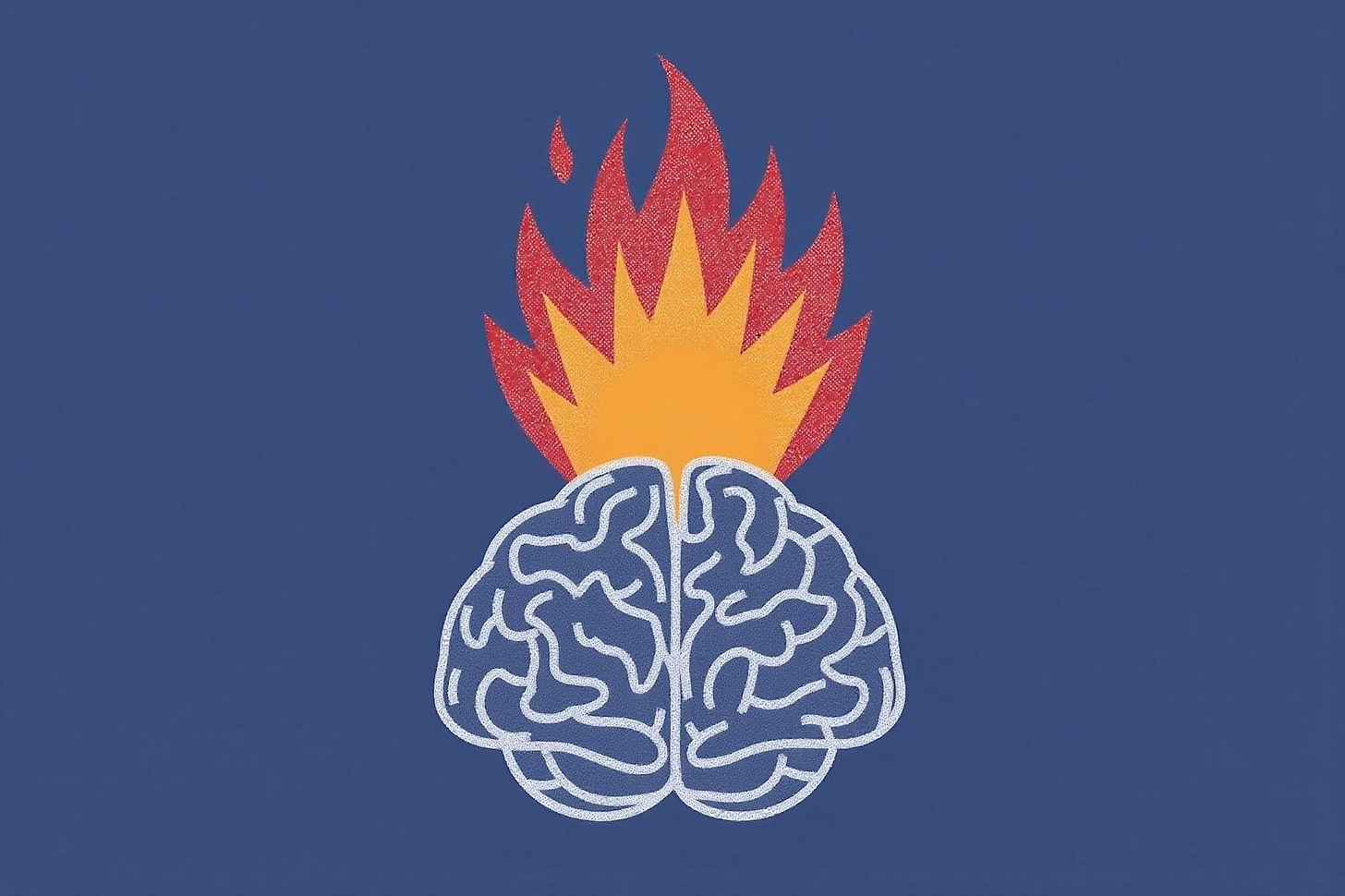Burnout - or as my colleague likes to put it; “completely frazzled”. Is something we can all struggle with and find ourselves in; the question is - how do we get out of it?
Ideate
You’ve set your business up, woo hoo! But now you’re also getting your kitchen renovated or moving house, maybe you’re trying to keep your gym routine going, to eat well (or remember to eat at all!). At the same time you’re attempting to keep in touch with your friends and family - wait, did you forget to organise date night with your significant other too? Hold on, that client is looking for their report; where is it? Darn it, you forgot to book your car in for its MOT!
Does any of the above sound familiar to you? It turns out, you actually can’t successfully spin a million plates and not expect them to crash; who knew?
This feeling of complete overwhelm, inability to prioritise, hopelessness, sensory sensitivity and memory loss are all symptoms of neurodivergent (ND) burnout. Which I do think can relate to anyone's brain (not just ND brains).
It can be completely paralysing. Today I want to share my tips for when I feel burnt out - mixed with some personal experience, lots of research and anecdotal evidence from ND friends and family.
Before we get to the tips, the big point to note here is that self awareness and learning to recognise you are becoming burnt out, before you actually become burnt out - this is much easier said than done!
Iterate
“Ok, I hear you Helena… but I’m already in burnout! Help?” - I’ve got you. These are my three top tips, from self experience, research and in chatting to other creative leaders to get you back on your feet.
Make sure to take breaks / time off
If you’ve recognised that you’re “frazzled” now is the time to rest, not to grit and power through. While determination can get us so far (see a previous post about this), learning to rest is a huge part of burn out recovery. Did you know there are at least seven different types of rest? While sleeping all day might sound wonderful, you might actually need to creatively rest and stop using that part of your brain for a little while! You can read more about the different types of rest here, but the main point is to ensure that you are implementing the rest you need.Boundary setting
When you’re struggling, boundary setting feels like the most counterproductive thing to do. However, firm boundaries hold you accountable from overworking and prevent you taking on more work accidentally. Some examples of boundaries you might want to employ are:A hard start and finish time - turn your work phone off, let clients and colleagues know, no work is to be conducted out of these times.
Not taking on new clients or additional work until “X date”
No calls on specific days (you decide what works best for you!)
Practical bits: manage your energy levels by breaking it down and delegate where possible
I do appreciate just taking time off until you feel “refreshed” just isn’t possible for everyone, so when you’ve had some time off (even if it’s only an afternoon!), try to delegate tasks where possible. Being self employed can make this challenging but having a virtual assistant, or asking friends and family for help, or even utilising AI can help to take some (or any!) pressure off you. You can try doing a “mega list” of everything you have to do and going through and marking what is “URGENT” (i.e. due by the end of day / week etc), “ASAP” (i.e. by the end of the month) and “LATER” (i.e. due this year). Breaking tasks down to a smaller list can help you to feel less overwhelmed by feeling like everything is due right now.
Implement
🧠 Do you struggle with burnout?
🧠 How do you tackle burnout when it strikes?
PS. I am going to try and practice what I preach (easier said than done, might as well be my strapline at this point)… I am going away for the next two weeks. So The Ideas Machine will be back in May, with a little refresh (the clue is in the title). See you then and thanks for reading!




